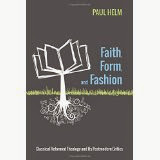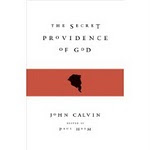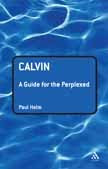The current
rebirth of a modified form of the Reformers’ doctrine of the Two Kingdoms is
certainly to be welcomed. Without going over all the ground why this is so, we
can mention two reasons here. One is that it emphasizes the otherworldliness of
the kingdom of Christ, and the place of the visible church as the focus of the
proclamation and growth of that kingdom.
Christ’s kingdom is not of this world, otherwise his servants would fight. The
authority which the risen Christ has been given
(‘all authority in heaven and on earth’) is concentrated on seeing to it
that his ordained ministers obey his charge of making disciples of all nations,
bringing them into the pale of the visible church through baptism, and teaching
them to obey all his commands, and promising his presence for ever. (Matt 28
18f.)
The Two Kingdoms and ‘Christian culture’
A second reason is
that the Two Kingdom's emphasis curbs the pretensions of some Christians to
become engaged in the ‘christianising’ of culture, to extend the present reign
of Christ to every sphere of life, as an expression of his Lordship. At present
few Christians seek one historically-important form of such alleged
‘christianising’, formal alliance with the state (though many are content with
existing state-church arrangements). Rather, these days Christians attracted in the christianising
direction have the tendency to think of this extension not into the life’s
mundane and sordid aspects, but to provide a mandate for Christians with enough
time and money to engage in ‘Christian art’ and (a current favourite) in ‘care
for the environment’. To prevent (inter alia) Planet Earth from being boiled into
a stew, through the influence of an excess of man-made ‘greenhouse gases’. But are either of these trajectories
legitimate expressions of Christ’s kingdom?
More could be
said, and no doubt should be. (For some of that more, see David VanDrunen, Living
in God’s Two Kingdoms, (Crossway, 2010)). But here I want to raise an area
of the Two Kingdoms’ outlook that requires more thought than (as far as I can
see) has so far been given to it. I shall state this difficulty and then try to
sharpen it by using the current issue of ‘Gay Marriage’ as an illustration.
The Difficulty
Part of the Two
Kingdoms outlook is to emphasise that Christians may take part in various
societal activities on the basis of the ‘natural law’, which all men and women
to some degree recognize. On that basis Christians may foster their own
particular political preferences, say, or participate in one or more of countless
voluntary recreational and charitable organisations, Edmund Burke’s ‘little
platoons’ which make up ‘civil society’ in every modern democracy, and in some societies
which are not so democratic. We look for agreement on how such groups are to be
run by appealing to natural law, to what all men and women hold in common,
despite the other competing and contradictory views that they may hold on other
matters.
But what is
‘natural law’ and how is it to be identified and estimated?
Christian Two Kingdoms
thinkers at this point appeal to how the Reformers understood it, rooted as
they were in the medieval natural law tradition. But in the final analysis they
appeal to how the New Testament writers, particularly Paul, refer to natural
law in Romans 1and 2 and in Acts 14 and 17, and so on. They may augment this
appeal, or frame it, by reference to the Noahic Covenant in Genesis 9,
especially verses 8f. (See VanDrunen, 78f.) (You may wonder if such appeals are
self-contradictory. I don’t think they are. A topic for another occasion,
perhaps.) The point about such data is that, in contrast to the exclusivity of
the Abrahamic Covenant, they have a universal, inclusive scope, an appeal to
mankind, (fallen mankind of course), to people of all nations, to what ‘nature’
teaches, and so on. (David VanDrunen, A Biblical
Case for Natural Law, (Acton Institute, 2006, especially Chs. II & IV))
Bearing this in
mind, we may return come to the question: How is the appeal to natural law to
be gauged or estimated?
We might think
that the way to estimate it is to count heads. That is, to regard ‘natural law’
as a ethnographic or demographic concept. Natural law is the set of norms that
all people hold in common. Just as it is natural for men and women each to have
two legs, with only a few having less, and even fewer having more, so ‘natural
law’ is what all (or almost all) people, or nations, or social groups, hold and
observe in common in respect of certain basic matters: common moral standards
governing making and keeping promises, rules for the holding and disposal of
property, relations between the sexes, a sense of equity, and so on. If not
what all people hold in common, then what the vast majority of mankind holds in
common.
The trouble is,
that while Genesis 9 (for example) reveals a covenant that includes certain
norms, it also recognises breaches of these norms. While Paul writes of the
working of the natural law (2.14) he also notes actions against nature. (1.27)
And so on. ‘Nature’ is not simply a statistical or ethnographical concept, merely
descriptive of what people hold, it is also and pre-eminently a normative concept. Its norms maybe and
are flouted by civil society.
‘Gay marriage’
And so we arrive
at ‘gay marriage’, the proposal that people of the same sex may fully
participate in the rites of a relationship instituted for a man and a woman,
having as one its principal aims the procreation of new members of the race. (As
the BCP puts it, ‘It [marriage] was [among other things] ordained for the
procreation of children, to be brought up in the fear and nurture of the Lord,
and to the praise of his holy Name’.)
How is ‘gay
marriage’ to be regarded? Is there a natural law argument that, if
successful, prohibits it? Either understanding of the natural law, either in
statistical or normative terms, is somewhat shaky. There obviously isn’t a
statistical or ethnographic argument. The success of the ‘gay rights’ movement
has seen to that. Is there a normative argument against it? There was a time
when homosexuality was regarded as ‘unnatural’ because its activities flouted
what was (as we saw) one of the chief ends of sexual relations, the procreation
of the human species. But where does one
hear of that today? Such has been the success of the ‘gay lobby’ that such a
view is hardly heard. It may be that the views of people in general
have changed little about the unnaturalness of ‘gay marriage’. But it is hard
to tell. Has the success of gay rights been solely due to an ideologically-driven
campaign? That also is hard to tell.
Paradoxically,
under present circumstances the only normative argument against ‘gay marriage’
would involve an appeal to what is
revealed about the content of
natural law. A natural law argument is going to have to appeal to Scripture, which (you
may think) rather defeats the purpose of an appeal to natural law.
So how are
Christians in society at large to argue their position? Are they, while seeking
to influence the political tide, to go along with the majority? Is arguing in the secular kingdom a mix of the pragmatic, the concessionary (as according to Christ the toleration of divorce is concessionary), the revealed, and the norms of the natural law? Or must Christians, as
part of their responsibility to the secular kingdom, take what is decidedly
a minority view, and argue that ‘gay marriage’ and homosexuality in general violates the natural law as
presented in Scripture?
There is at
the present time in the UK a perfectly understandable prudential argument against ‘gay
marriage’, namely that to legislate that churches may be permitted not to conduct such marriages will inevitably lead to pressure on the courts, and
ultimately on the European Court of Human Rights, to require all Christian churches (and others) to conduct ‘gay marriages’
for those who request them. Otherwise they will be actionable on the grounds of
discrimination. But at the time of putting together this piece it appears that Government
proposes to legally prohibit the Church of England and the Anglican Church in Wales (and
perhaps other groups) from conducting ‘gay marriages’, and underpin this with other legal safeguards.
It may be that for the Prime Minister this is a political tactic to help him to keep the political initiative, or a Christmas present to fellow old-Etonian Julian Welby, shortly to be the Archbishop of Canterbury and a known opponent of ‘gay marriage’. Whatever David Cameron’s motive, for such a Bill to become law would create a roadblock on the otherwise smooth descent in which, over many decades, the Church of England has shed historic Christian positions and followed the mores of the secular, liberal ruling elite. It’s difficult to suppose that this legislation is intended to give expression to the views of ordinary men and women, and in that way to be an expresson of the natural law at work. But it may be that, nevertheless.
It may be that for the Prime Minister this is a political tactic to help him to keep the political initiative, or a Christmas present to fellow old-Etonian Julian Welby, shortly to be the Archbishop of Canterbury and a known opponent of ‘gay marriage’. Whatever David Cameron’s motive, for such a Bill to become law would create a roadblock on the otherwise smooth descent in which, over many decades, the Church of England has shed historic Christian positions and followed the mores of the secular, liberal ruling elite. It’s difficult to suppose that this legislation is intended to give expression to the views of ordinary men and women, and in that way to be an expresson of the natural law at work. But it may be that, nevertheless.
Maybe the
strongest ground that Christians and others have currently to argue against
‘gay marriage’ is not to appeal to the unnaturalness of same-sex marriage, but
to other values that the legal validation of ‘gay marriage’, when it is
legalized, will call into question, such as freedom of conscience in religious
observance. Though whether the self-governance of the Christian church, and the
consciences of Christian and other people in such matters, are cases of natural
law, also seems very debatable.









